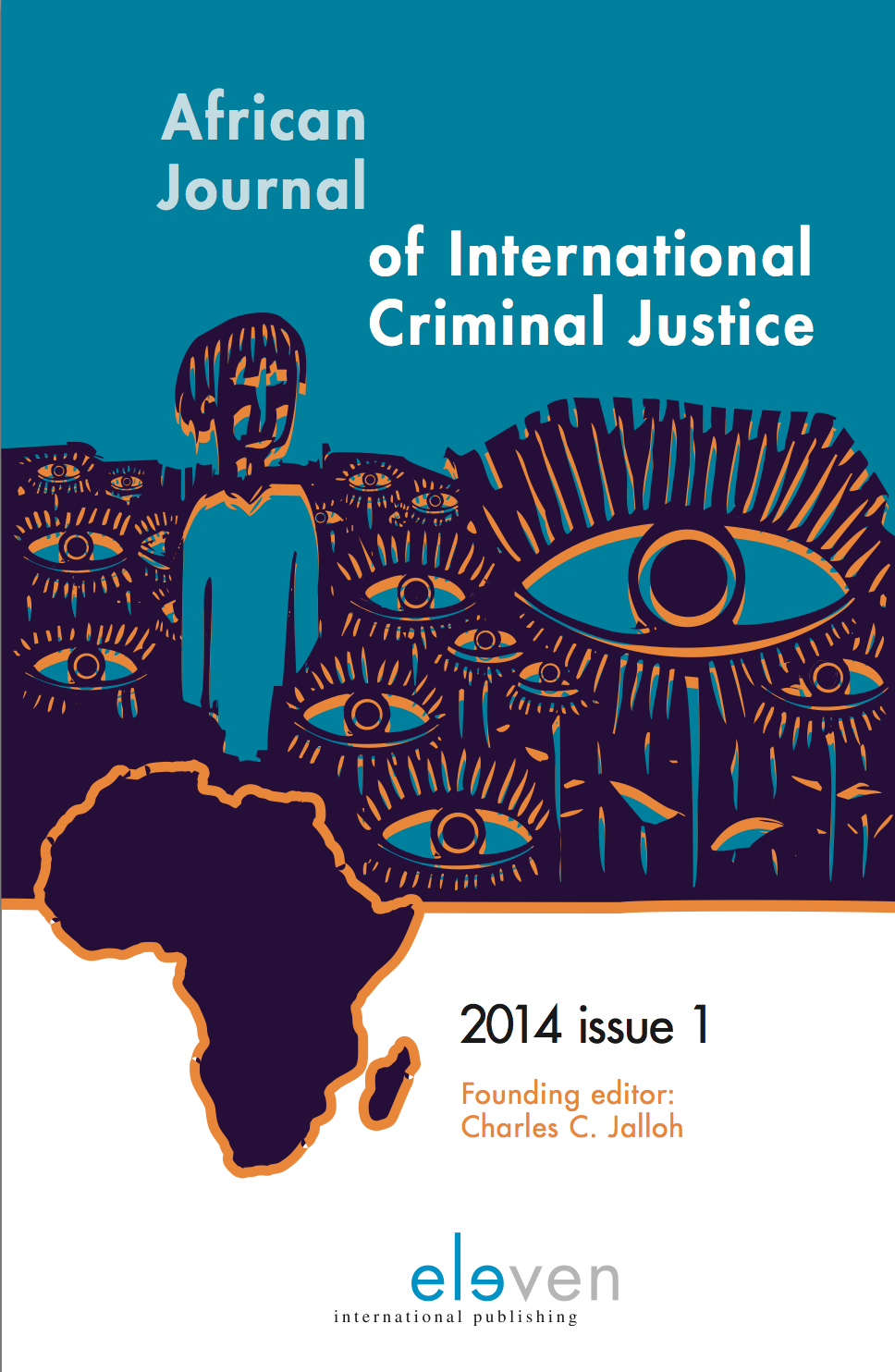|
This article examines the challenges of investigating and prosecuting forced displacement in the Central African countries of Democratic Republic of Congo and Uganda, where higher loss of life was caused by forced displacement, than by any other. In the Democratic Republic of Congo, armed groups intentionally attacked civilian populations displacing them from their homes, to cut them off from food and medical supplies. In Northern Uganda, the government engaged in a forced displacement policy as part of its counter-insurgency against the Lord’s Resistance Army, driving the civilian population into “protected villages”, where at one point the weekly death toll was over 1,000 in these camps. This article critically evaluates how criminal responsibility can be established for forced displacement and alternative approaches to accountability through reparations. |


African Journal of International Criminal Justice
About this journalSubscribe to the email alerts for this journal here to receive notifications when a new issue is at your disposal.
| Article |
|
| Keywords | Forced displacement, International Criminal Court, Uganda, Democratic Republic of Congo, reparations |
| Authors | Luke Moffett |
| AbstractAuthor's information |
| Article |
|
| Keywords | International Criminal Court, proprio motu, prosecutorial discretion |
| Authors | Simeon P. Sungi |
| AbstractAuthor's information |
|
The Kenyan Situation pending before the International Criminal Court (ICC) is the first situation in which the prosecutor exercised his power to initiate cases “proprio motu” under Article 15 of the Rome Statute. In the wake of the comments from the former Chief Prosecutor of the International Criminal Court (ICC), Luis Moreno-Ocampo, that there was political interference from foreign diplomats during the investigation stage of the cases, it is prudent to re-examine the standards provided under the Rome Statute regarding prosecutorial discretion and evaluate the prosecutorial power and how the Kenyan cases may shape this discretionary power in order to align it with the Preamble of the Rome Statute. The Preamble affirms that the most serious crimes of concern to the international community must not go unpunished. Further, that their effective prosecution must be ensured for the purposes of ending impunity for the perpetrators of international crimes and thus to contribute to the prevention of genocide, crimes against humanity, war crimes, and crimes of aggression. |
| Article |
|
| Keywords | Côte d’Ivoire, Laurent Gbagbo, trial, performance, narratives |
| Authors | Oumar Ba |
| AbstractAuthor's information |
|
This article explores the politics of international criminal justice and argues that the International Criminal Court is a lieu of staged performance where actors deploy their political narratives. Using the Situation in the Republic of Côte d’Ivoire before the ICC and focusing on the pre-trial phase, I contend that the defendants Laurent Gbagbo and Charles Blé Goudé project a performance and deploy political narratives that are the extension of the politics of the Ivorian crisis, which make the Court the quintessential arena where domestic and international politics cohabit with law and rules of procedure. |
| Article |
|
| Keywords | Accountability, conflict, crimes, justice system |
| Authors | Stanley Ibe |
| AbstractAuthor's information |
|
Over the last decade, Nigeria has witnessed several high-intensity conflicts. It became a country under preliminary investigation by the International Criminal Court (ICC) following allegations of serious crimes. In 2013, the boko haram insurgency was classified as a “non-international armed conflict.” Commentators appear divided over the capacity and willingness of domestic institutions to manage crimes arising from or connected with conflicts in Nigeria. Those who argue for unwillingness often point to the struggle to domesticate the Rome Statute of the International Criminal Court (Rome Statute) as one of the clearest indication that there is not sufficient interest. This article interrogates the question of seeming impunity for serious crimes in Nigeria and makes a case for domesticating the Rome Statute through an amendment to the Crimes against Humanity, War Crimes, Genocide and Related Offences Bill, 2012 pending before the National Assembly. |

 Issue 2
Issue 2